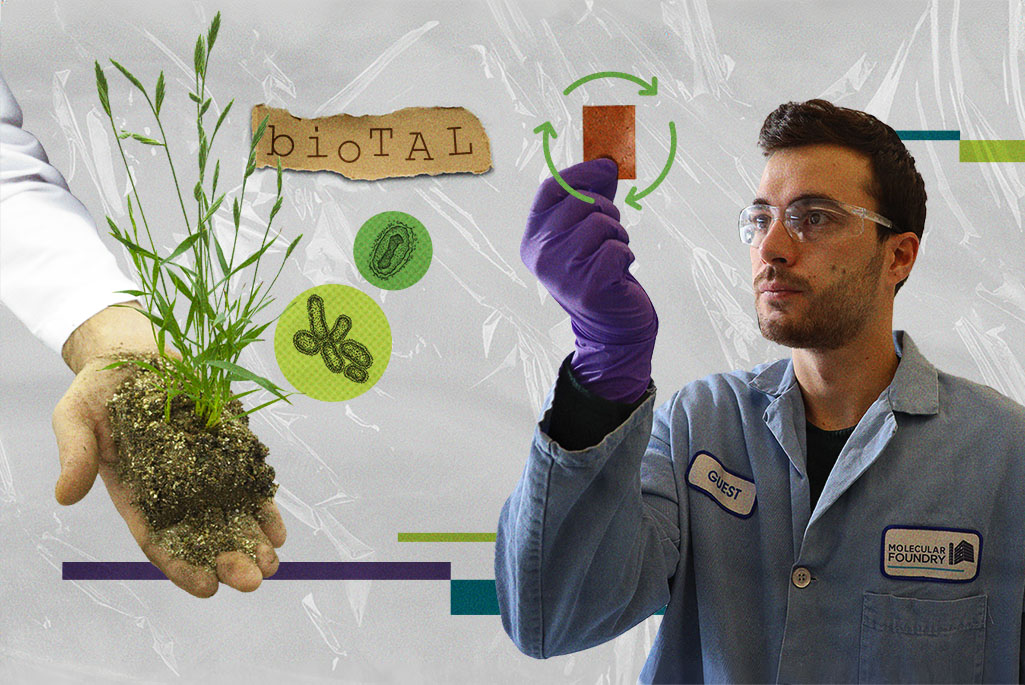New research from a collaboration among experts at the Molecular Foundry, the Joint BioEnergy Institute (JBEI), and the Advanced Light Source has shown that the starting ingredients in an infinitely recyclable plastic known as poly(diketoenamine), or PDK, can be successfully made by microbes. These ingredients replace finite, polluting petrochemicals with sustainable alternatives. The new approach shows that renewable, recyclable plastics are not only possible, but also outperform those from petrochemicals.
Unlike traditional plastics, PDK can be repeatedly deconstructed into pristine building blocks and formed into new products with no loss in quality. PDKs initially used building blocks derived from petrochemicals, but those ingredients can be redesigned and produced with microbes instead. Now, after four years of effort, collaborators have manipulated E. coli to turn sugars from plants into some of the starting materials – a molecule known as triacetic acid lactone, or bioTAL – and produced a PDK with roughly 80% bio-content.
The study builds on a 2021 environmental and technological analysis, which showed that PDK plastic could be commercially competitive with conventional plastics if produced at a large scale.
“Our new results are extremely encouraging,” said Corinne Scown, a staff scientist in Berkeley Lab’s Energy Technologies Area and a vice president at JBEI. “We found that with even modest improvements to the production process, we could soon be making bio-based PDK plastics that are both cheaper and emit less CO2 than those made with fossil fuels.”
Read more in the Berkeley Lab News Center




